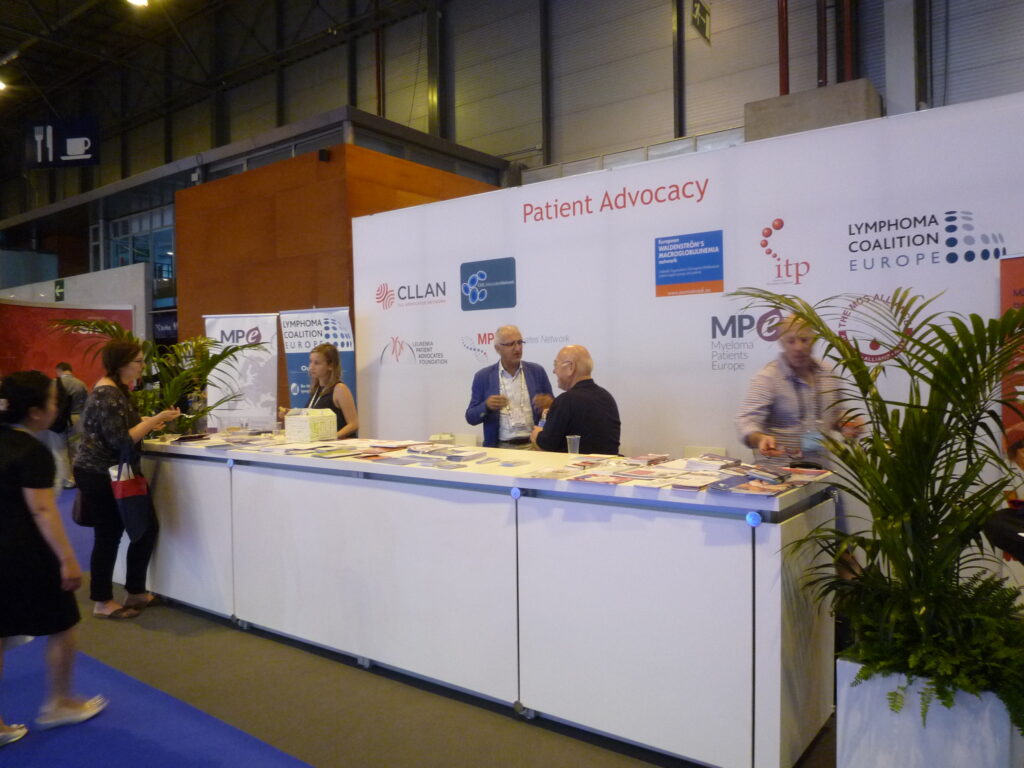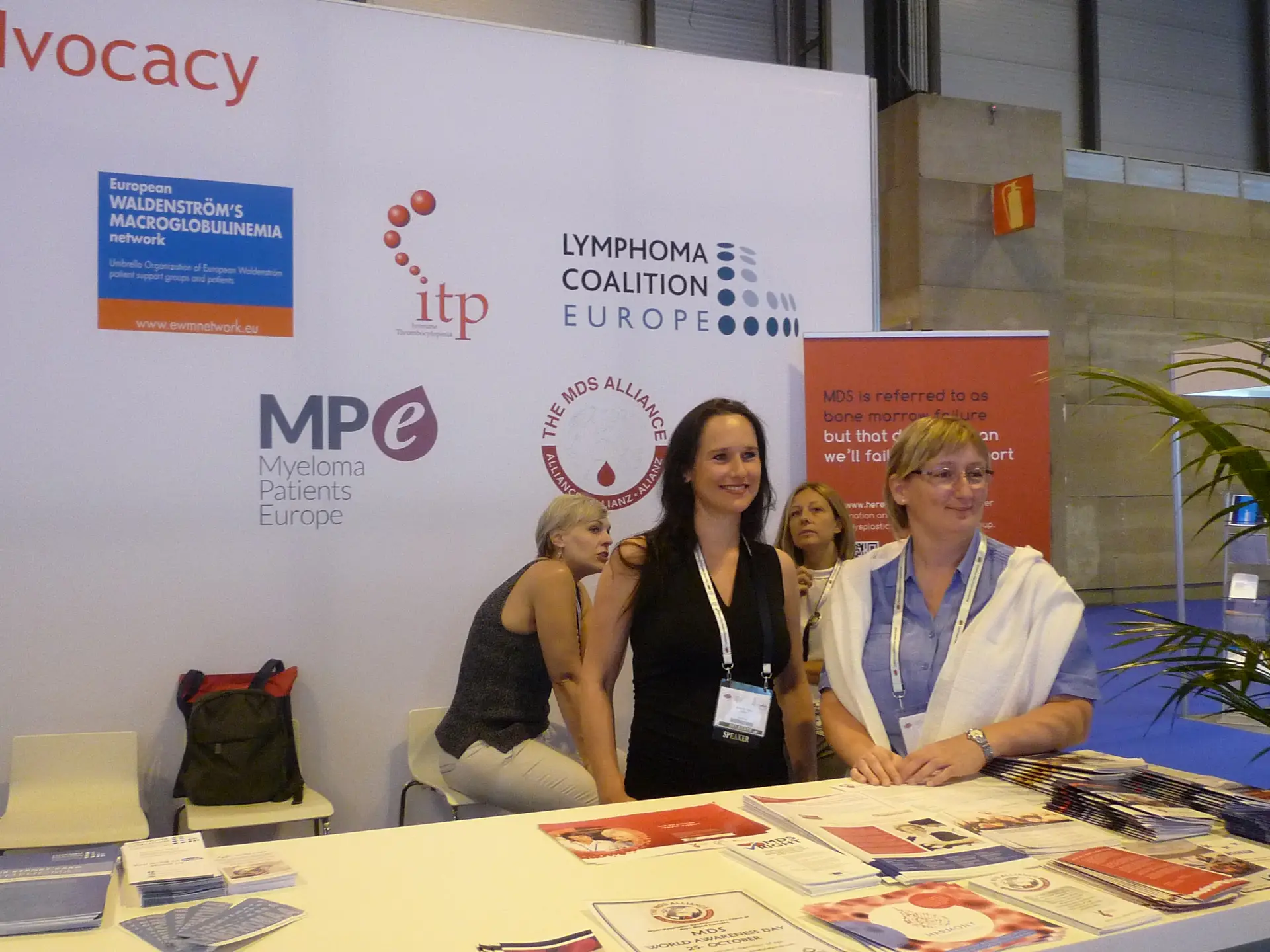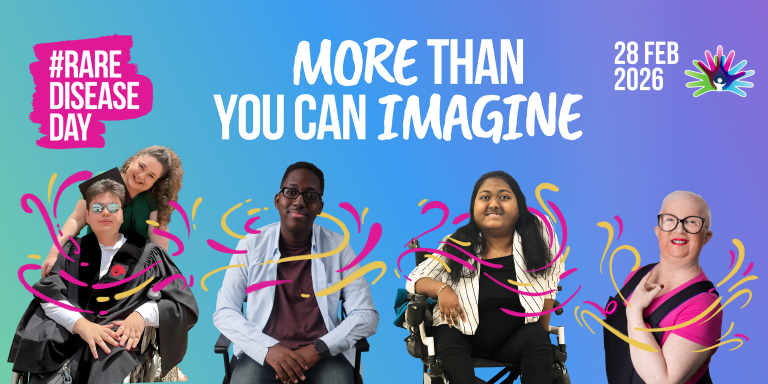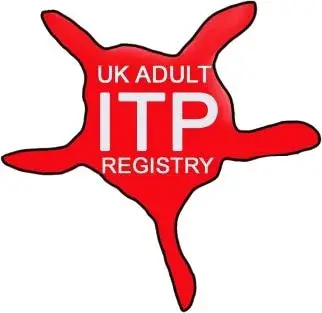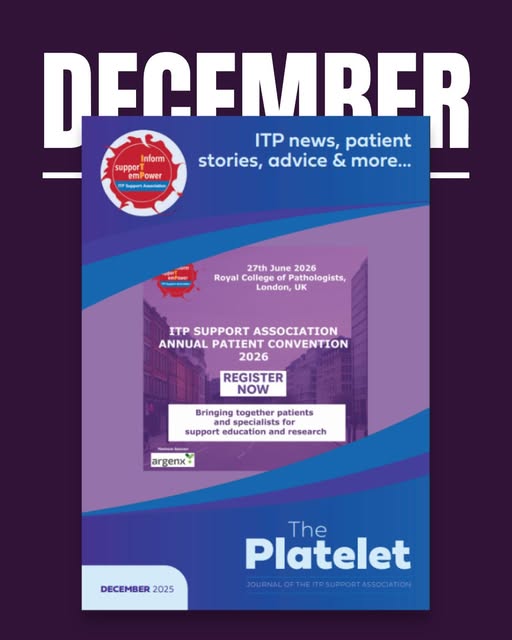Report – EHA Annual Conference Madrid 2017
EUROPEAN HAEMATOLOGY ASSOCIATION
ANNUAL CONFERENCE
MADRID JUNE 22nd – 25th 2017
Derek Elston (Trustee,) EHA Patient Advocate Workgroup Member
Near forty degrees of heat is not the most desirable temperature in which to attend any conference, but thank goodness, the heat in Spain is somewhat dryer than here in the UK and the conference centre was air conditioned.
The conference was held at the IFEMA conference centre located on the outskirts of Madrid approx. 5 mins from the international airport.
Again this year, the conference was attended by over 10,000 delegates from all four corners of the world, all with a common interest in BLOOD and the problems that affect us all. Undoubtedly, malignant conditions are more common than non-malignant when it comes to research. Never the less, non-malignancy conditions are equally important and rightly demand attention.
The conference program was full of sessions endeavouring to cover as many blood ailments as possible. Sadly, with the sheer number of blood conditions, this is not possible to achieve, especially with the advancement of science and research finding derivatives of already known conditions.
There is always a very large representation from the pharmaceutical companies and the advocates booth was visited by many of our old friends from Novartis, Spire and Amgen.
This year there were more than 450 talks or sessions spread over the four days of the conference supplemented by poster sessions. Presentations are given by members of EHA from many different countries on their specialist subjects and allows the opportunity for delegates to question the presenters on their research and finding. This is a most valuable medium for all to learn the latest information available and to ‘network’ with others in different countries.
The poster sessions held at the end of the day, present in a visual format, results of research and drug trials. These are usually prepared by a group of specialists in their particular fields and are available to discuss the information that is available to read.
This year Dr John Grainger,(UK,) our own paediatric adviser, presented a poster on the long term efficacy and safety study of Romiplostin in children with ITP. His co authors were Prof. Jim Bussell (USA); Dr Nichola Cooper, (UK,) Dr Michale Tavantino (USA); Prof Victor Blanchett (Canada); Dr Jenny Despotive (USA); Dr Alexy Maschan (Moscow); Dr Nancy Carpenter (UK); DR Mellis Eisen (USA); Dr Bhakti Mehta (USA). A truly international collaborative survey with the aim to assess platelet response in children with ITP receiving Romiplostim.
The result for year one on an open label study of Romiplostim, indicated that there were NO new safety signals. NO effects of Romiplostim were observed on the bone marrow in the subjects of patients with bone marrow biopsies. Future data cuts for years 2 and 3 in the study will be the largest on Romiplostim in children with ITP with a total of 79 years exposure to data. This will provide more information on platelet response, dosage, requirement and safety.
Prof James Bussell (USA) was part of a team from the USA; Poland and Czech Republic with a presentation on platelet disorders and a trial study on Fostamatinib. This was undertaken on 150 patients all with chronic, long term ITP with counts <30. The study concluded that this new drug substantially improves platelet counts with pre-treated, severe chronic ITP patients of long term duration. If this drug is approved, it could be an important alternative as a single agent in certain situations.
In respect of patient advocacy, EHA have embraced and promoted the importance of patient involvement and participation in their international conferences. I am very pleased to have been a part of this development over the last few years representing ITP internationally, together with advocates representing other conditions from all over Europe. We have witnessed the importance of patient advocacy grow and this year, the patient’s advocates were granted 2 separate business sessions on the Saturday morning in addition to a capacity building session for advocate members on the Thursday at the start of the conference. The first session was entitled Innovative Clinical Trial Designs, Adaptive pathways and Patient involvement. This session lasted an hour and a half with speakers from France; Germany; USA and the UK.
The second session on the same day was entitled Pregnancy During and After Treatment: Myths and Reality. Speakers were from Germany; UK; Spain. This session was specifically related to Myloma.
At both sessions, the halls were full with clinicians and other delegates. One session over flowed into an adjoining room. This emphasised the change in attitude of many medical personnel who may have needed persuasion that patient’s voices should be heard and had an important role to play.
The advocacy group has grown and flourished. The future is now firmly set in the program for EHA conferences. The work group, which comprises one representative from each condition, is to be re-organised into a more formal group with structure and we hope some secretarial assistance from The Hague. It is also hoped there may be some funding to assist patient groups to attend.
Steps were taken this year to unify the patient’s booth in the exhibition hall and comprised one long table top for literature and a back cloth printed with the logos of each medical condition represented. The booth was situated in a predominant position in the exhibition hall and would have been passed by most of the delegates at some time during the convention on their way to collect their lunch box or visiting another booth.
Thankfully we had some leaflets left from last year in Copenhagen which our good friend Davy from Copenhagen had stored and transported to Madrid. In addition, Mervyn prepared a QR code which was firmly attached to the desk for delegates to scan onto their phone or tablet. This enabled them to have access to our web site and to register their interest in ITP and then later, to log on and down load any information they may require. Innovative. It attracted much interest from the other advocates for the way forward especially when space was limited.
Overall, a very good conference even if there was not very much content specifically for ITP. Who knows, maybe next year there will be more.
(Derek Elston attended on a self-funding basis and was not supported by the ITP Support Association)
